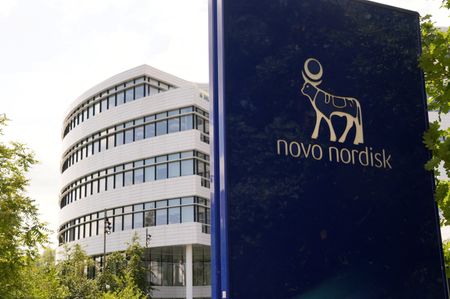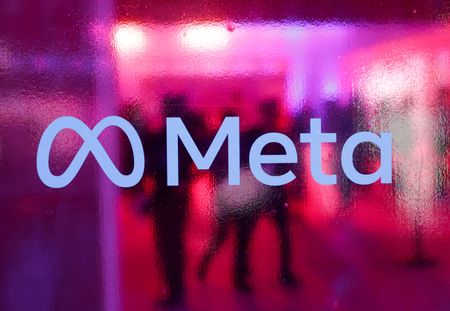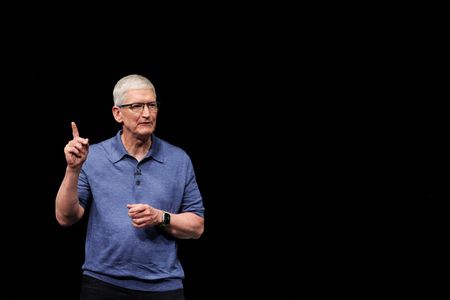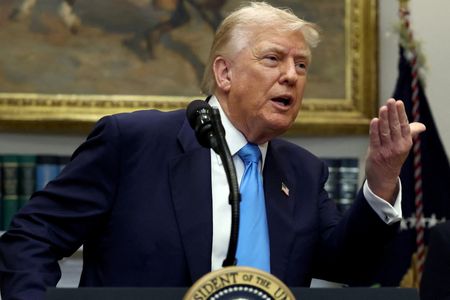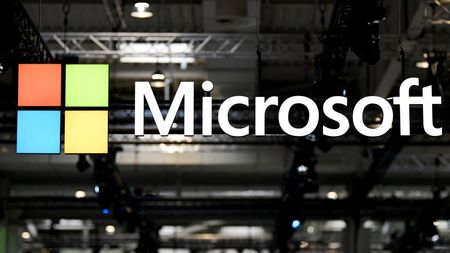By Jacob Gronholt-Pedersen
(Reuters) -Shares in Novo Nordisk fell as much as 6% on Friday before recovering some ground later in the session, extending recent losses that threaten to wipe out all the gains since the drugmaker launched its blockbuster weight-loss treatment Wegovy four years ago.
The fall on Friday means the Danish firm has dropped out of the top 10 constituents of the Europe-wide STOXX 600 index.
Share price declines across the sector were prompted by U.S. President Donald Trump, who sent letters on Thursday to 17 major pharmaceutical firms, including Novo Nordisk, telling them to cut drug prices in the United States.
Novo Nordisk on Tuesday slashed its forecast for 2025 sales growth due to competition from compounded, or copycat, versions of Wegovy and appointed veteran insider Maziar Mike Doustdar as its new CEO, prompting its shares to fall 23% on the day.
Novo became Europe’s most valuable listed firm after launching Wegovy in June 2021, worth some $650 billion in the middle of last year. But its shares have lost more than two-thirds since on concerns the drugmaker is losing ground in the obesity drug race. Its market cap is now $214.5 billion.
“The U.S. healthcare system is complex, but Novo Nordisk will continue to work to find solutions that help people access the medicines they need at affordable prices,” Novo said in an emailed statement.
Novo’s shares were around 2% lower at 1453 GMT, bringing this week’s losses to around 30% – the stock’s worst week ever.
The European healthcare index was down around 1% to its lowest since April.
“Trump doesn’t have the mandate to tell Novo Nordisk how to price their products in the U.S., but investors are just panicking about the risk of another downgrade,” said Nordnet analyst Per Hansen.
The pressure to lower prices adds to Novo’s problems in the United States, its biggest market. It faces competition from Eli Lilly and from compounders – custom-made medicines that are based on the same ingredients as branded drugs.
“This is a repricing of the obesity market, it’s a repricing of the United States as the world’s most attractive drug market, and it’s a repricing of the risk from Donald Trump,” Hansen said.
(Reporting by Anna Pruchnicka, Elviira Luoma, Jacob Gronholt-Pedersen and Louise Breusch Rasmussen. Editing by Amanda Cooper, Mark Potter and Elaine Hardcastle)

